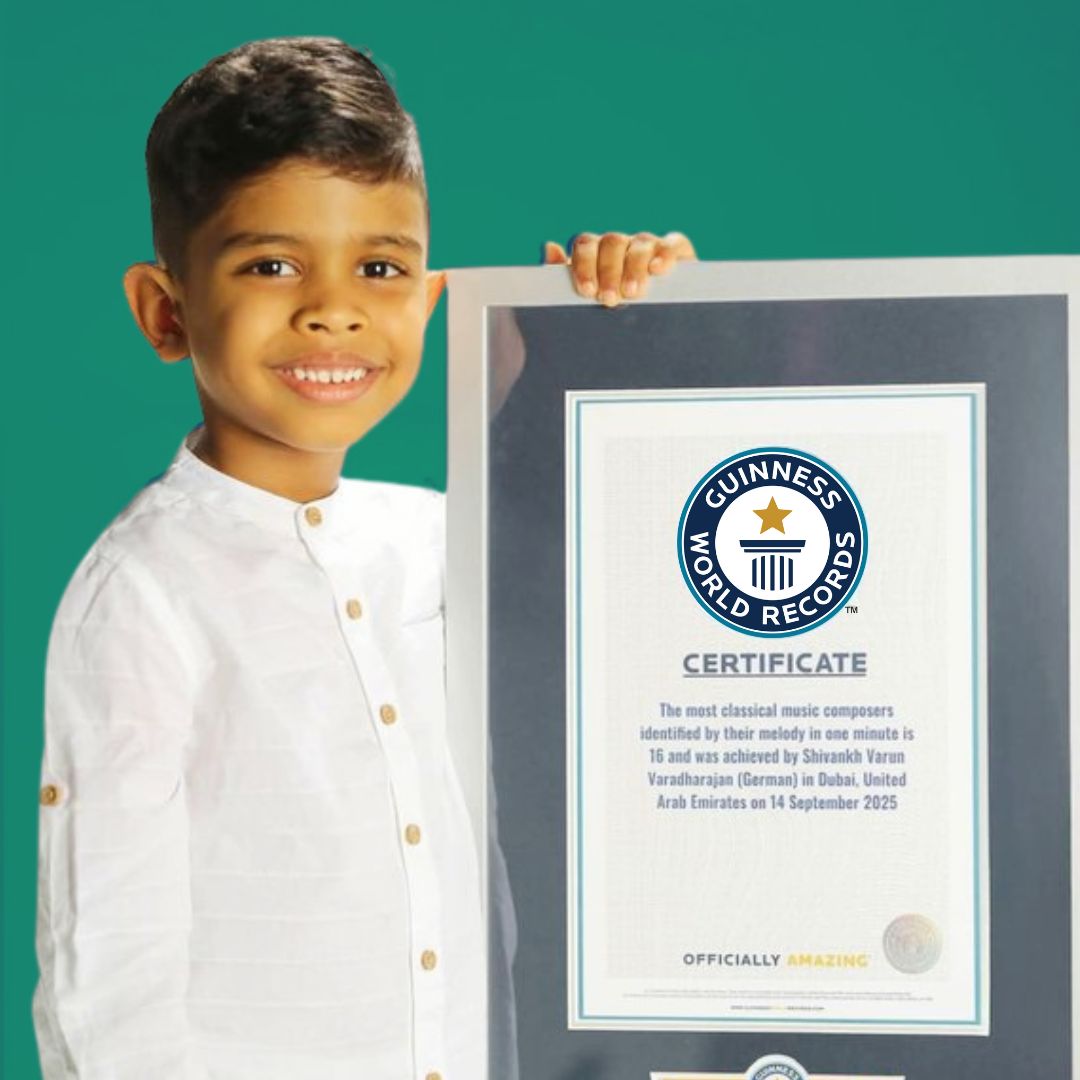A six-year-old German-Tamil boy, Shivankh Varun Varadharajan, recently made headlines by setting a Guinness World Record for identifying the highest number of classical music composers by melody within 60 seconds. Achieving this feat on September 14, 2025, Shivankh demonstrated remarkable auditory skills by correctly naming 16 composers, including Bach, Mozart, Beethoven, and Chopin, among others.
Born and raised in Dubai, Shivankh’s journey began at two and a half years old with a fascination for cartoon jingles, revealing an extraordinary musical ear that was nurtured by his mother. Guinness World Records officials and music experts applauded his accomplishment as a unique example of raw talent, refined through consistent encouragement and care.
Early Signs of an Exceptional Talent
Shivankh’s gift became evident when he began humming along to television scores, especially those in cartoons such as Tom and Jerry. Unlike most children who hum simple tunes, he could distinguish nuances in complex classical pieces from an early age, as per a report by India Times.
During his Guinness record attempt, Shivankh’s calm composure and precision impressed the adjudicators, marking him as one of the youngest record holders in this niche but challenging field.
Nurturing Potential Through Support and Exposure
Shivankh’s story underscores the importance of an encouraging environment in developing young talents. Yalini, his mother, emphasises how attention to a child’s unique interests and consistent nurturing are crucial. Shivankh was raised in a multicultural environment with Tamil roots in Dubai, where he was exposed to diverse sounds and classical music from an early age.
Experts and educators have reiterated that early exposure to music, combined with understanding neurodivergent perspectives, can unlock remarkable skills that might otherwise remain hidden. This record serves as a powerful reminder of the role of empathy, patience, and culturally rich surroundings in fostering exceptional abilities in children.
Shivankh Varun Varadharajan is not the first child prodigy to astonish the world with his musical talents, but his achievement sets a new benchmark in the specific skill of identifying classical composers by ear. Historically, classical music has seen prodigies from a young age who have composed or performed complex works.
For example, Johann Nepomuk Hummel was composing significant sonatas by the age of 14, under the tutelage of Mozart. Another remarkable figure, Frederick Arthur Gore Ouseley, reportedly composed a complete and coherent piece of music at the astonishing age of just three years and ninety-eight days. Additionally, Muzio Clementi composed a full-scale oratorio by age 12, demonstrating early technical ease.
These young composers, like Shivankh, highlight different dimensions of musical genius: composition and performance versus Shivankh’s unique skill of rapid and accurate auditory identification. Sergei Prokofiev, another historic prodigy, started composing symphonies by early childhood, while Max Bruch and George Frideric Handel also began musical creation during their youth, with compositions and performances that foreshadowed their later greatness.
The Logical Indian’s Perspective
This inspiring story of Shivankh aligns deeply with The Logical Indian’s commitment to celebrating empathy, kindness, and the nurturing of human potential beyond conventional norms. Shivankh’s achievement demonstrates how talent transcends age and background when met with patience, support, and an inclusive mindset towards neurodiversity.
It challenges society to rethink the ways we recognise and support diverse expressions of intelligence and creativity. As communities and educational systems evolve, The Logical Indian encourages ongoing dialogues about how best to nurture, identify, and celebrate the unique talents of every child, fostering harmony and collective growth.













